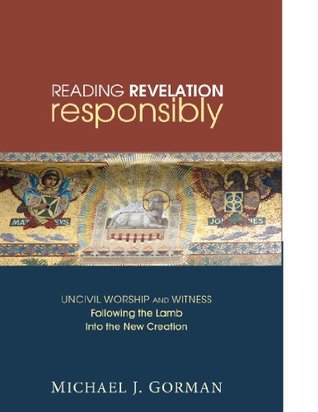Most scholars agree that Revelation is simultaneously an apocalypse, a prophecy, and a letter, “an apocalyptic prophecy in the form of a circular letter.”1 Revelation also seems to be a liturgical (or worship, or theopoetic) text and a political (or theopolitical) text. As Eugene Peterson observes in commenting on Revelation as a political work, “The gospel of Jesus Christ is more political than anyone imagines, but in a way that no one guesses.”2
Welcome back. Just a moment while we sign you in to your Goodreads account.


